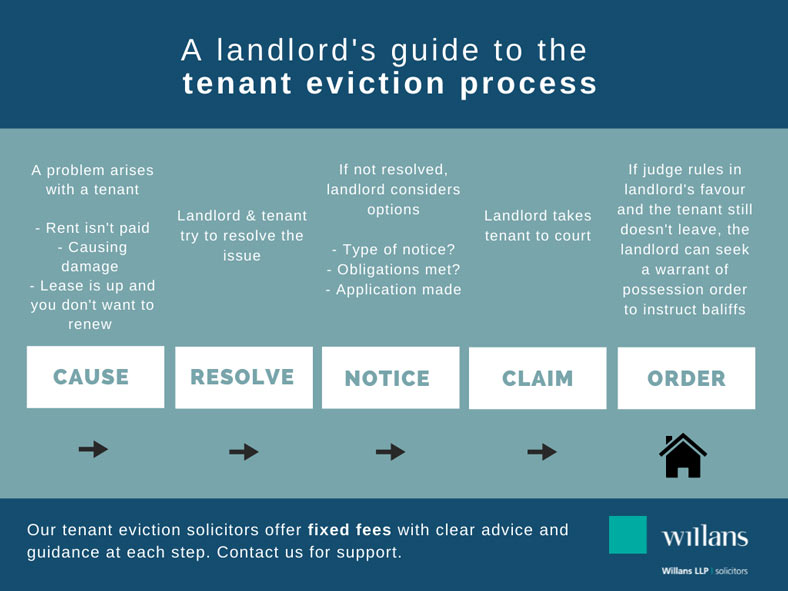Understanding Your Rights When Facing an Eviction Notice
Receiving an eviction notice can be a stressful and overwhelming experience. However, it is crucial not to panic or make hasty decisions such as moving out immediately without understanding your legal rights and the procedures landlords must follow. This comprehensive guide aims to inform tenants about the proper steps to take if faced with an eviction notice, the legal protections in place, and how to effectively respond to protect your housing rights.
Legal Procedures Landlords Must Follow
In many jurisdictions, landlords are obligated by law to adhere to strict legal procedures before evicting a tenant. Simply receiving an eviction notice does not mean you must vacate the property immediately. Typically, eviction processes begin with a written notice from the landlord outlining the reason for eviction, followed by opportunities for tenants to respond or cure the situation.
These legal steps are designed to ensure fairness and protect tenants from unlawful or unjust evictions. The key steps landlords usually must follow include:
- Providing a written notice that specifies the cause and timeline for eviction;
- Filing an eviction lawsuit in court if the tenant does not comply with the notice;
- Obtaining a court order for eviction if the judge rules in the landlord’s favor;
- Coordinating with law enforcement for the physical removal of the tenant if necessary.
Understanding these procedural safeguards is essential to protect your rights and prevent unlawful evictions.
Do Not Move Out Immediately Upon Receiving an Eviction Notice
One of the most critical pieces of advice for tenants who receive an eviction notice is to refrain from moving out immediately. Moving out prematurely may waive your rights and the opportunity to challenge the eviction legally.
Instead, tenants should carefully read the eviction notice to understand the reason, the timeline, and any actions they might take to resolve the issue. Often, notices include options like paying overdue rent or correcting lease violations within a certain period to avoid eviction.
It is highly advisable to seek legal advice or assistance to understand your position fully and to ensure that any response you make is well-informed and timely.
Attend All Court Hearings and Gather Evidence
If eviction proceedings advance to the court stage, it is crucial to attend all hearings. Failure to appear can result in the court granting the eviction by default. During hearings, tenants have the opportunity to present evidence that supports their case.
Evidence may include records of payments made, communications with the landlord, or documentation of repair issues that have not been addressed. Such evidence can be instrumental in defending against eviction, especially if the tenant has a legitimate reason such as non-receipt of proper notice, payment disputes, or landlord negligence in maintaining the property.
Protection Against Retaliatory and Discriminatory Evictions
Laws in 2025 and prior protect tenants from evictions carried out as retaliation or discrimination. A retaliatory eviction occurs when a landlord attempts to evict a tenant in response to the tenant exercising a legal right, such as reporting housing code violations or joining a tenant’s union.
Discriminatory evictions are unlawful expulsions based on race, religion, gender, disability, family status, or other protected classes under federal, state, or local laws. Tenants facing such evictions should be aware that these actions violate fair housing laws.
If you believe your eviction falls under retaliatory or discriminatory circumstances, it is essential to gather as much documentation and evidence as possible and to consult with a legal professional immediately.
How a Local Housing Attorney Can Help
Engaging a qualified local housing attorney can make a significant difference in eviction cases. Attorneys understand the complexities of housing laws and can provide expert guidance tailored to your jurisdiction. Common ways attorneys assist tenants include:
- Reviewing eviction notices for legal sufficiency;
- Advising on tenant rights and possible defenses;
- Representing tenants in court hearings and negotiations;
- Helping to delay or stop wrongful eviction proceedings;
- Assisting with filing complaints for retaliatory or discriminatory evictions.
Accessing proper legal help can enhance your defense and increase the chance of a favorable outcome.
Steps to Take Immediately After Receiving an Eviction Notice
To protect yourself effectively, consider the following steps:
- Carefully read the eviction notice and understand its contents;
- Document all communications with your landlord;
- Collect receipts, payment records, and correspondence relating to your tenancy;
- Identify any repair requests or unresolved property issues;
- Consult a local housing attorney or tenant’s rights organization;
- Attend all court hearings as required;
- Do not vacate the premises unless a court order or legal agreement has been reached.
Additional Resources for Tenants Facing Eviction
Numerous organizations and agencies provide support to tenants at risk of eviction. These include legal aid societies, tenant advocacy groups, and local housing departments. They can offer legal advice, mediation services, and emergency assistance.
Utilizing these resources in conjunction with legal counsel can provide a broader safety net and help tenants navigate difficult situations more confidently.
Communication Is Key
Maintaining open communication with your landlord can sometimes resolve disputes before they escalate to eviction. If possible, discuss the issues, propose payment plans, or request extensions.
Being proactive and cooperative can occasionally prevent misunderstandings and lead to mutually agreeable solutions.
When to Reach Out for Professional Help
If you are overwhelmed or uncertain about your situation, do not hesitate to seek professional legal assistance. Our experienced team at Legal Marketplace CONSULTANT is here to provide comprehensive legal support tailored to your needs.
You can reach out to us through the contact links provided in our bio or send a private message to initiate a confidential consultation. Prompt action can help preserve your rights and potentially avoid eviction.
Legal Marketplace CONSULTANT is dedicated to offering full legal assistance to tenants facing eviction, ensuring their rights are protected and upheld through every step of the process.
Our team provides expert representation at all levels of housing courts, helping tenants navigate complex legal proceedings effectively.
We facilitate communication between landlords and tenants to explore alternative resolutions wherever possible.
Facing an eviction notice requires calm, informed action. Tenants should understand their legal rights and the eviction process, avoid hurried moves, gather supporting evidence, attend all court proceedings, and seek legal counsel when necessary. Retaliatory and discriminatory evictions are unlawful and can be contested with proper documentation and legal support. The Legal Marketplace CONSULTANT team is available to help safeguard tenants' housing rights in 2025 and beyond.































